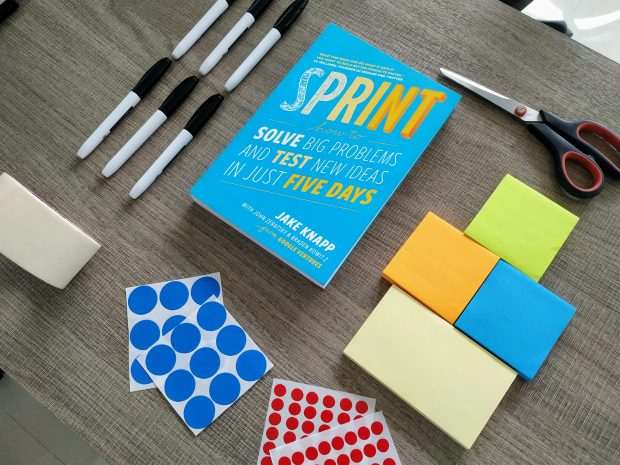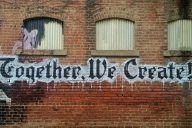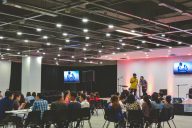One of the most rewarding parts of my work is facilitating change. Especially mindset change in individuals. This can come in many forms and the one that I think is the best is in more intensive learning experiences such as innovation challenges.
Learning what is possible in a short amount of time can be a real mindset shift for many people.
This mindset shift is what is needed in almost every business and organisation today to move away from older, more traditional methods of development where it can take months or even a year to develop products or services.
Every Organisation Needs Adaptability
It isn’t that the older way of doing things is necessarily all bad. But the world moves at such a pace now, that having speedier tools that can be deployed, when necessary, will give individuals and their organisations an advantage. This agility and adaptability allow people to think in more diverse ways, include people they may not have done previously, and give them tools to try new ways in a more simple and straightforward way.
Facilitating Change Mindset
The first thing that is required by everyone involved in any of these intensive learning events is an open mind that is willing to look beyond the regular boundaries for what is possible.
Open to developing a mindset that includes things like:
- valuing and enhancing creativity
- increased tolerance towards ambiguity
- a higher willingness to take risks
- being intrinsically motivated through curiosity
- and, very importantly, a willingness to accept failure as not only a valid outcome but viewing it as a learning experience.
During the event, the participants will be practicing and enhancing these different mindset skills as well as learning new tools and methods for problem-solving. In essence, they will be reinforcing the new mindset by learning tools and methods that reinforce their use in the future. The mindset described above is often referred to as the Entrepreneurial Mindset.
Learning By Doing
Learning by doing is used in many institutions. It is an “active learning methodology based on experience to assimilate concepts through actions.” (1) This methodology is used slightly differently in different places, but it is not new at all. When you look way back into education and history, you can read that as early as 4th century, Aristotle says in Nicomachean Ethics Book 2 “We learn an art or craft by doing the things that we shall have to do when we have learnt it” [often quoted as ‘What we have to learn to do, we learn by doing’]. (2)
The objective of this learning by doing method is to build fundamental memories of how to do something. To avoid the natural forgetting that often happens when we only hear or read about how to do something. Using the learning by doing method, the participant internalises the concept more deeply when it is an experience rather than just a mental memory.
Intense Learning Experiences: Sprints, Jams, and Hackathons
With this learning by doing method in mind, intense learning experiences are important framework for quickly embedding new methods and mindsets into participants. This framework is both flexible and modern. Intense learning experiences are when groups of participants come together for a limited amount of time. Ideally this timeframe would be 2-10 days but can be just one day for a very short learning experience.
This experience will be simultaneously rigorously scheduled while the progress and content are ambiguous. Participants work in teams with a challenge that has been either provided by the trainer or an organisational partner. The process that everyone uses is standardised – like the service design methodology. This allows for everyone to follow the process and understand what is expected of them in the present and what will come next. A shared process creates a clarity in the face of the ambiguous (and ambitious) task at hand. It is important to make sure each participant of a group knows what is happening and to be able to contribute appropriately. This also allows any organisational partners to feel secure that their time is not being wasted and that it is not too chaotic to follow the progress of the team.
All the while, the participants are learning and using a reusable set of methods that they can apply elsewhere once the event is over. The teacher also has a framework for which to base learning progress and assessment on if assessment is part of the learning journey of the participants.
There are many different types of innovation challenges, three of them are more fully explained in previous blog posts: Service jams, Hackathons, and Design sprints. Each of which are for a different purpose.
Skills practiced and developed
The skills that are developed during an intense include:
- the process that is being used (design thinking, design sprint, etc)
- teamwork skills
- tolerating ambiguity/uncertainty
- taking learnings from failures
- being user-centric
- user/customer research methods
- ideation
- creating concepts from individual ideas
- prototyping & testing concepts
- knowing where to spend time and where to speed up
There are certainly more that will come from this kind of event, it really depends on the individuals. The last bullet point is illustrated better in another blog article called Slowing Down to Speed Up – From First Idea to Prototype. Sprinting skills can be really helpful to move a project forward much more quickly than previously attempted.
These skills are useful for most people in most jobs. Change is hard but having an agreed upon method is already an important step. Having this will help many people to move projects along faster than usual. This can help organisations succeed faster but also to move on from failures faster. Both of these save staff time and the organisation’s financial resources.
Author
Pamela Spokes works as a Service Designer in Metropolia’s RDI team. Originally from Canada, Pamela has years of experience in university admin focusing on international recruitment, marketing, and the international student/staff experience. With a Bachelor’s from Canada, a Master’s degree from Sweden, an MBA in Service Innovation & Design from Laurea, and her AmO from Haaga-Helia, she is interested in purposefully designed experiences that are centred around the user. Don’t be surprised if she knocks on your door to talk about learning co-creation methods through intensive learning experiences.
Resources
- Learning by doing: what is it and what is its methodology? (smowl.net)
- Oxford Essential Quotations (5 ed.) Aristotle 384–322 BC, Greek philosopher. (oxfordreference.com)









Ei kommentteja